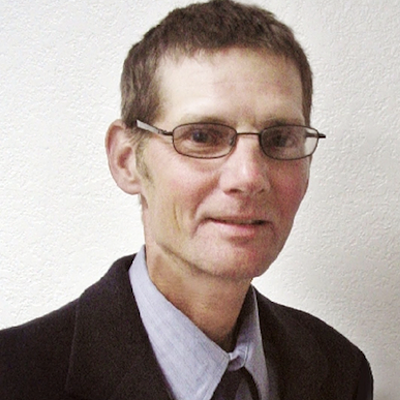The proposal was seen as a way to reduce the negative impact of the flights on the neighborhood while recognizing the importance of their medical mission. All the draft needed was the approval of the neighborhood association, something that its president, Jim Kluger, was confident would happen.
However, after Kluger presented the proposal to about 50 neighborhood residents last fall, all hell broke loose.
Several people wanted the City of Tucson to be included as a party to the agreement so it could help protect neighborhood interests. Others objected to a statement in the draft that read, "Violation of this [agreement] shall not give any person or entity, whether or not party to this [agreement], a right to damages, injunctions, or other judicial remedies."
Instead of approving the proposal, the Jefferson Park residents decided to try to renegotiate the agreement, completely ignoring Kluger's statement that he was "categorically positive we won't get anything more."
Since October, little has happened toward changing the proposal, but people in the neighborhood are still pointing fingers at one another about their motives for either wanting the agreement approved or killed. At the same time, the vicious name-calling among residents over the issue has descended to vulgar propositions.
But while nothing much has happened with the proposed agreement in the past nine months, several things may occur shortly. Early in June, the Tucson City Attorney's office made a public records request for information concerning all helicopter flights to UMC since 1998. According to recently deposed City Attorney Tom Berning, who signed the letter, "It is the lack of a factual basis for what constitutes emergency medical conditions that has resulted in a failure of the parties to reach a final agreement on the issues."
City Councilman Jerry Anderson, who represents the Jefferson Park area, adds, "We plan to use this information as a base to work from. It will allow us to break down the number of flights which are emergency related, and those that aren't."
Anderson also wants the city to be part of the agreement. "It is very appropriate for the city to be involved," he says. "The city can monitor the situation to insure compliance with the agreement as a representative of the neighborhood association."
But John Duval, chief operating officer of UMC, disagrees. He would like to resume negotiations with the nearby residents, but believes "the best plan is for us to work directly with the neighborhood association."
Jim Kluger, who is no longer president of the association, adds, "What is the city going to do? Jerry Anderson has some fantasy that the city will regulate helicopter flights at UMC, but the Arizona Board of Regents will never accept that."
While the bickering continues over whether the city should be a part of a renegotiated agreement, the neighborhood may be looking at an increase in the number of flights. As part of a consultant study, which Duval says is a "community-wide assessment looking at making the trauma center system better," UMC may add 15 to 20 additional flights per month. A final decision, however, has yet to be made.
Given the potential for additional flights, UMC's reluctance to include the city as part of the agreement, and the continuing rift in the neighborhood over the issue, what do the people of Jefferson Park think now?
In the opinion of Doug Dennison, current president of the association, "We didn't lose a thing since the draft agreement only protected UMC and the university. I'm very happy to have it the way it is. It's advantageous to keep this wound open because the problems weren't resolved by the proposed agreement."
Jim Kluger takes the opposite view. "It was a 100 percent mistake not to accept the agreement," he says. "The agreement was good and did everything we wanted. Plus, despite my initial fears, John Duval was honorable and honest throughout the process. I can't tell you how frustrating this has been, but nobody in the neighborhood will listen."
Dennison, however, thinks that to be effective a renegotiated agreement has to address the specific number of flights to UMC. While the possible future increase is small, he believes the potential for more helicopters flying to UMC "may be the straw that breaks the camel's back".
Despite the stalemate over changing the original agreement, UMC is complying with one of the agreement's biggest conditions. It continues to have helicopters use "fly-friendly" procedures that limit the choppers approaching and departing the hospital's roof-based landing site to a narrow corridor south of the facility, away from the neighborhood.
Despite the current impasse, Jerry Anderson remains optimistic that a revised agreement can be reached and that the city will be a part of it. "UMC and the university will consent to that," be believes, "because they will realize that it is in everyone's best interest for that to happen."
But in Jim Kluger's opinion, "The agreement was the maximum we were going to get. It made the best of a bad situation, and what more can you do?"











